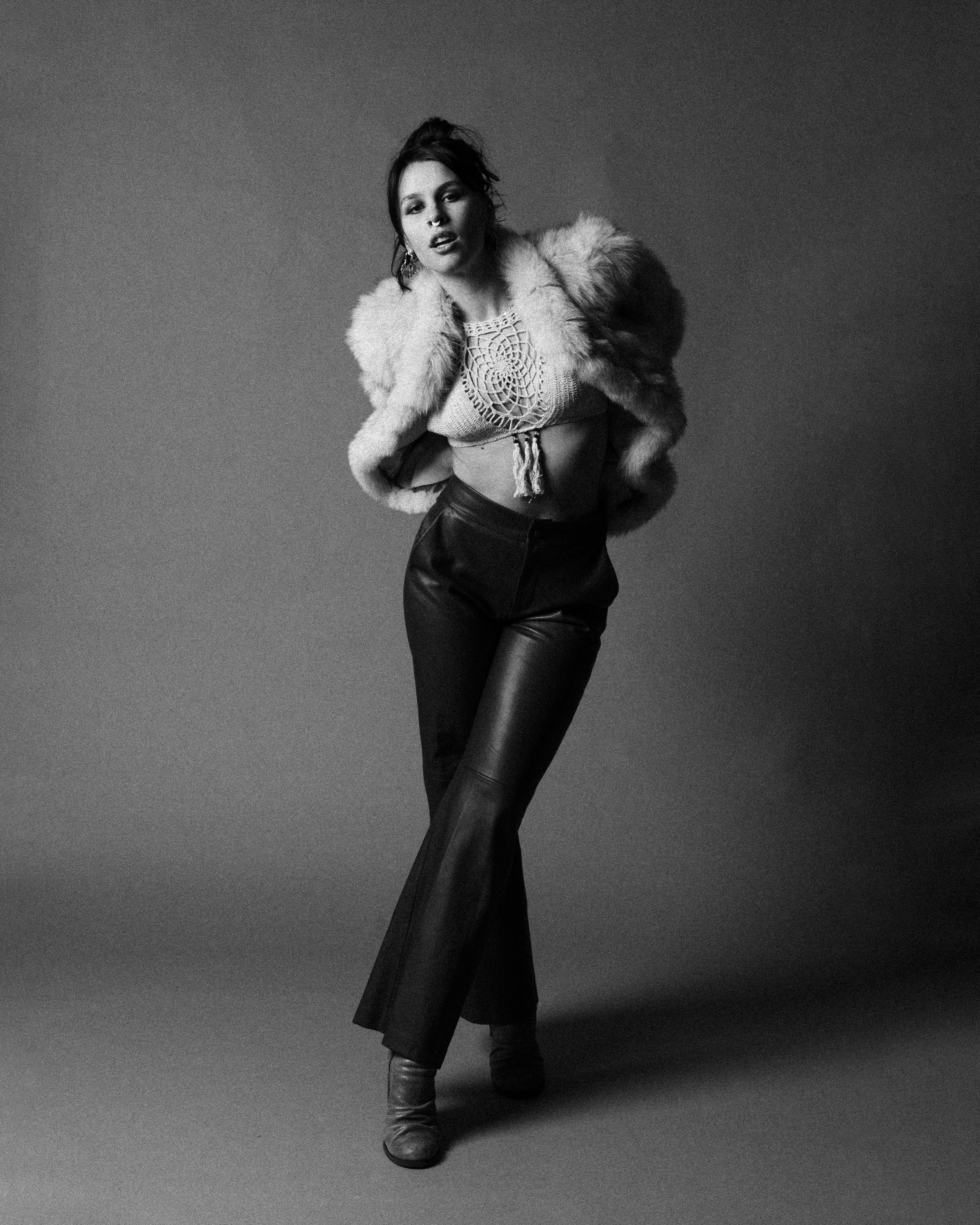

Tennessee-born songstress Emily Justin may have arrived on this planet not too long ago, but her songs convey wisdom and an essence far beyond her years. She approaches composition, rehearsal and her live performance like a seasoned pro. When you listen to Justin’s verse and chords, she evokes the endearing heart of Etta James, the gravel n’ gut of Nina Simone and the timeless and intoxicating swagger of the late Amy Winehouse.
Justin is emerging as a local beacon and buzz keeper, drawing curious crowds to her Nashville performances, impressing even the most jaded music biz folks. She has caught the attention of notable producers and agencies, but thrives on the response from her newest and knowing fans. All while sober.
A conscious mix of rock, blues and gospel, Justin fuses eras, styles and sensibilities. Her most influential musical mentor is undoubtedly her father: a Detroit-style blues-rocker who snarled and strut on the same stages as The Stooges, Mitch Ryder and the MC5. “Music is second nature to me,” she says with a shrug. “And it’s genetic to the core. Like I’ll ask my dad a question and he’ll answer me with a guitar lick.”
Her powerful pipes croon in good company. She’s noticeably affected by the legendary Englishman, Paul Rodgers - and can jam through the Bad Co. and Free catalogs with precision and passion. “Paul’s voice can take us everywhere,” she muses. “He can sing softly, but there’s still so much strength behind it. He can get loud and yet there’s always such tenderness.”
Justin processes music through a rare creative asset called chromesthesia, a form of synesthesia where one experiences colors while hearing sounds - and in her case musical notes. “I can see my songs,” she confesses. “If they flow, the colors dance. When I’m on stage if there is any doubt I just close my eyes.” And a perfect paradox: one of the first songs she learned on guitar was ‘Paint It Black.’
Justin has continued to hone in on her indigenous heritage and draws from her ancestors to add depth to her words while bringing fabled stories forward. She says with intention, “I not only want my songs to represent who I am but where I come from.”
Not to mention, where she’s going…
— Lonn Friend